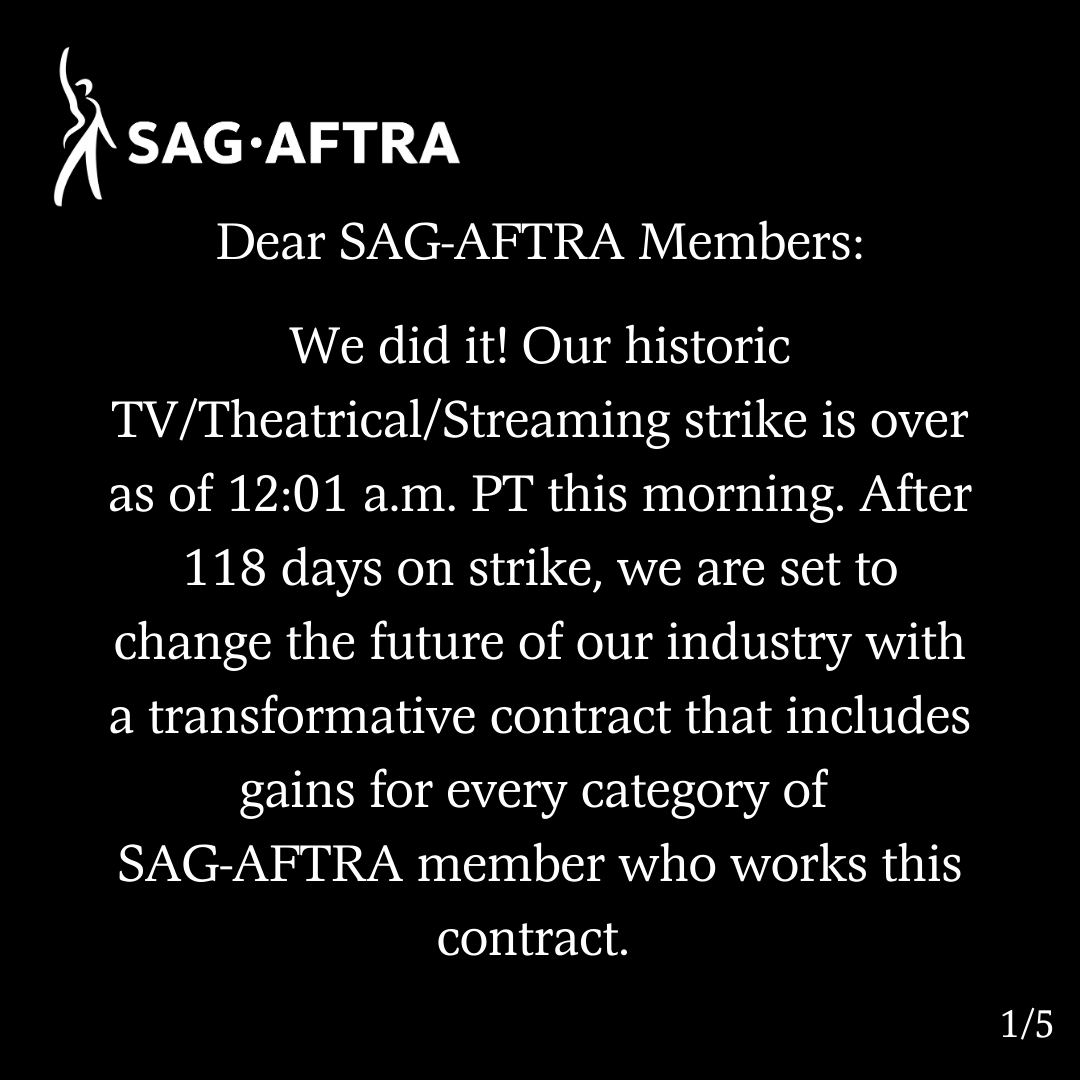03:48:37 pm 11/10/2023
Viewed: 4848
Title: Major Breakthrough in AI Rights for Actors: Understanding the New SAG-AFTRA Agreement
As technology continues to evolve, the intersection of artificial intelligence (AI) and the entertainment industry has sparked numerous debates and concerns, particularly among actors. Recently, a significant development occurred in this realm, which may set a precedent for the future of AI in film and television.
The Crux of the Agreement
After a prolonged 118-day strike, actors under the SAG-AFTRA union have achieved a groundbreaking victory. According to Duncan Crabtree-Ireland, the chief negotiator for the union, the new labor agreement mandates that movie studios must obtain explicit permission from actors for using their images in AI-generated content. Furthermore, it ensures that actors are fairly compensated whenever their digital doubles are utilized on screen.
Actors’ Rights and Compensation
This three-year contract introduces a crucial right of consent and fair compensation for actors when their digital replicas or AI-generated counterparts are used. Interestingly, the agreement sets a baseline for compensation in such instances, while also allowing actors the liberty to negotiate higher payments.
Implications for Film and Television Performers
The advent of AI in the entertainment industry had sparked fears among actors, particularly those involved in background and voice work. Concerns about being replaced by digital or AI-created 'metahumans' were rampant. This agreement, however, introduces safeguards against such replacements, although specific details are yet to be disclosed.
Broader Impact and Industry Response
The use of AI for tasks like erasing age lines or altering dialogues has been a point of contention, raising ethical concerns about putting unapproved words in an actor’s mouth. The new contract addresses these issues head-on, establishing clear 'guardrails' that evolve with technological advancements. This move is a significant stride in protecting the interests and integrity of actors in the age of AI.
Studios and Technological Firms: A Cautious Approach
The Alliance of Motion Picture and Television Producers, representing major studios, has acknowledged the contract, emphasizing its extensive consent and compensation protections. Tech executives in Hollywood have noted that studios were awaiting clear industry guidelines on AI use before fully embracing its possibilities. Scott Mann, co-CEO of Flawless, notes the industry’s cautious approach but also acknowledges the revolutionary potential AI holds for the sector.
Parallel Developments in Writing
Interestingly, film and television writers, after their own five-month-long strike, have secured similar protections regarding AI use. Studios are now required to inform writers if AI-generated materials are used.
Conclusion and Personal Opinion
This agreement is a landmark achievement for actors in the digital age. It balances the need for technological advancement with the rights and integrity of performers. It sets a precedent that could influence other creative industries where AI is making inroads. In my opinion, while the potential of AI in entertainment is immense, it's crucial to navigate these developments with a focus on ethical considerations and the rights of creators and performers. This agreement is a step in the right direction, ensuring that as we embrace the future, we don't lose sight of the human element that lies at the heart of storytelling.
As technology continues to evolve, the intersection of artificial intelligence (AI) and the entertainment industry has sparked numerous debates and concerns, particularly among actors. Recently, a significant development occurred in this realm, which may set a precedent for the future of AI in film and television.
The Crux of the Agreement
After a prolonged 118-day strike, actors under the SAG-AFTRA union have achieved a groundbreaking victory. According to Duncan Crabtree-Ireland, the chief negotiator for the union, the new labor agreement mandates that movie studios must obtain explicit permission from actors for using their images in AI-generated content. Furthermore, it ensures that actors are fairly compensated whenever their digital doubles are utilized on screen.
Actors’ Rights and Compensation
This three-year contract introduces a crucial right of consent and fair compensation for actors when their digital replicas or AI-generated counterparts are used. Interestingly, the agreement sets a baseline for compensation in such instances, while also allowing actors the liberty to negotiate higher payments.
Implications for Film and Television Performers
The advent of AI in the entertainment industry had sparked fears among actors, particularly those involved in background and voice work. Concerns about being replaced by digital or AI-created 'metahumans' were rampant. This agreement, however, introduces safeguards against such replacements, although specific details are yet to be disclosed.
Broader Impact and Industry Response
The use of AI for tasks like erasing age lines or altering dialogues has been a point of contention, raising ethical concerns about putting unapproved words in an actor’s mouth. The new contract addresses these issues head-on, establishing clear 'guardrails' that evolve with technological advancements. This move is a significant stride in protecting the interests and integrity of actors in the age of AI.
Studios and Technological Firms: A Cautious Approach
The Alliance of Motion Picture and Television Producers, representing major studios, has acknowledged the contract, emphasizing its extensive consent and compensation protections. Tech executives in Hollywood have noted that studios were awaiting clear industry guidelines on AI use before fully embracing its possibilities. Scott Mann, co-CEO of Flawless, notes the industry’s cautious approach but also acknowledges the revolutionary potential AI holds for the sector.
Parallel Developments in Writing
Interestingly, film and television writers, after their own five-month-long strike, have secured similar protections regarding AI use. Studios are now required to inform writers if AI-generated materials are used.
Conclusion and Personal Opinion
This agreement is a landmark achievement for actors in the digital age. It balances the need for technological advancement with the rights and integrity of performers. It sets a precedent that could influence other creative industries where AI is making inroads. In my opinion, while the potential of AI in entertainment is immense, it's crucial to navigate these developments with a focus on ethical considerations and the rights of creators and performers. This agreement is a step in the right direction, ensuring that as we embrace the future, we don't lose sight of the human element that lies at the heart of storytelling.
No video exists.





Comments